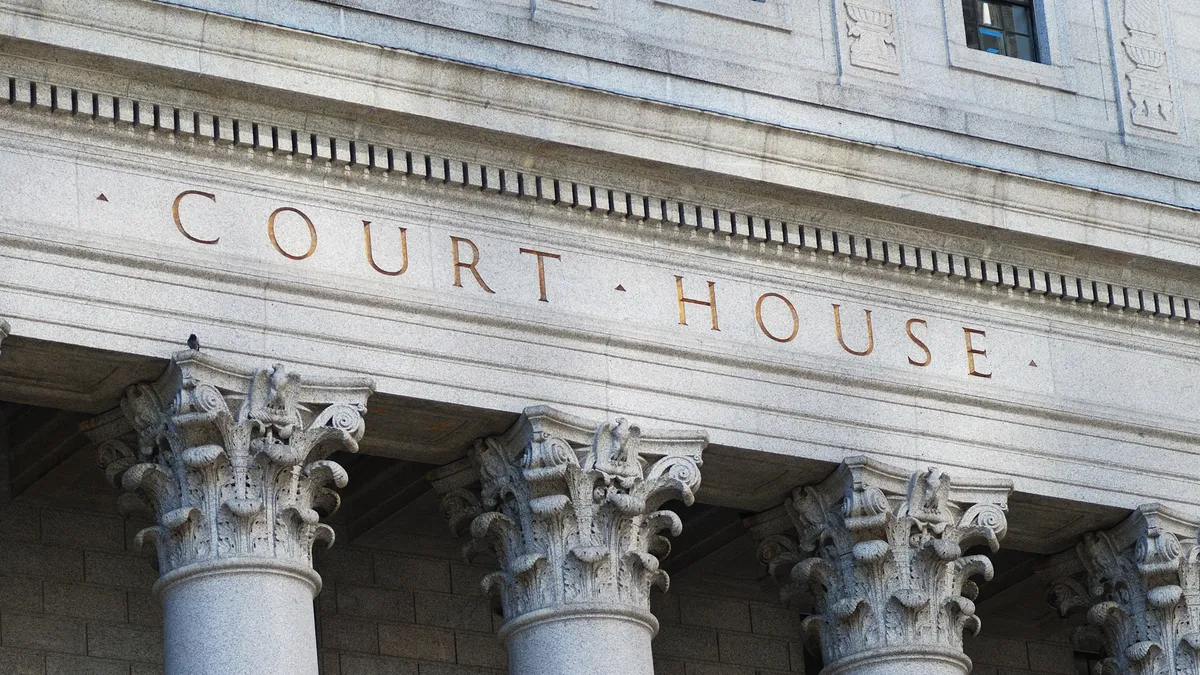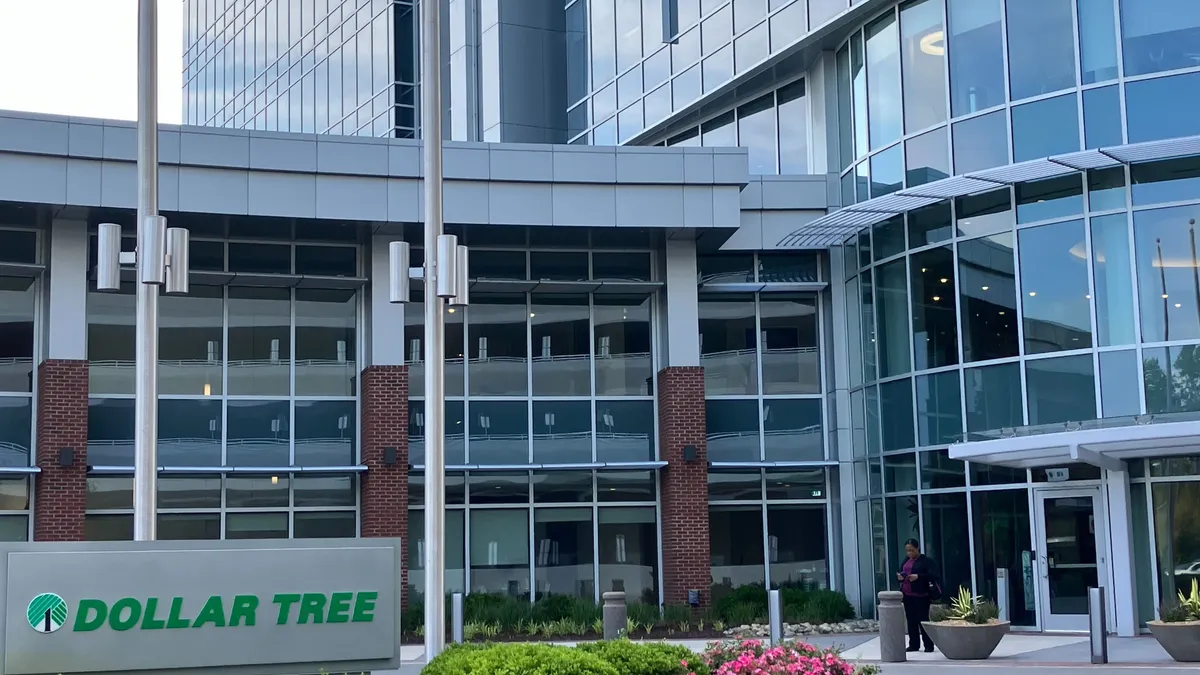Google searches for "force majeure" peaked in the U.S. in mid-March, just days before DHL Global Forwarding and Ceva Logistics invoked the provision, warning shippers they may not be able to fulfill their contractual obligations due to the uncertainty caused by the coronavirus pandemic.
"We expect that these declarations will continue to emerge across the logistics market," Gartner Senior Principal Analyst Courtney Rogerson told Supply Chain Dive in emailed comments. Based on the search traffic, shippers have been thinking the same thing.
Matthew White, strategist with iDrive Logistics, told Supply Chain Dive his clients reached out "in horror" after DHL’s declaration.
The blanket advice, from nearly all experts consulted for this report, to face these declarations when they come is to understand the exact terms of existing contracts and maintain open lines of communication with service providers.
Each declaration will follow carriers' efforts to weigh liability concerns against maintaining shipper confidence. A basic understanding of force majeure — and the real reason carriers make the declaration — may help to lessen some of the panic they generate.
"It’s a balance between keeping customers informed and not alarming them," Jennifer Semko, partner with global law firm Baker McKenzie, told Supply Chain Dive in an interview.
What is force majeure?
Force majeure (FM) is a provision in many service contracts that describes the conditions under which a provider can be relieved of liability for non-performance, based on events that are beyond the provider's control.
"In general – don’t expect your package to arrive on time, but you can expect your package to arrive barring regulatory actions."

Matthew White
Strategist, iDrive Logistics
The word "pandemic" may not be included in many FM provisions, but many include more general conditions under which a pandemic would fall — namely an "act of God" or governmental interference.
"The coronavirus outbreak presents a somewhat unique situation in that it includes both a naturally occurring component (the virus itself) and a government action component (including the quarantines and other measures put in place in response to the outbreak)," Cynthia Rigsby, partner and intellectual property lawyer for law firm Foley & Lardner, wrote in a blog post emailed to Supply Chain Dive.

With China several months ahead of the U.S. in terms of coronavirus mitigation, peak in cases and economic impact, data compiled by Resilience360 shows logistics firms were a small minority of the total firms issued government certificates indicating FM as of the beginning of April. But outside China, as the rest of the world grapples with the pandemic and the extreme measures needed to end it, industry experts predict the logistics industry will be less of an exception.
Does force majeure mean a carrier stops shipping?
Likely not. Even when they declare FM, carriers have a duty to deliver shipments unless doing so is impossible.
"In general, don’t expect your package to arrive on time. But you can expect your package to arrive, barring regulatory actions. Force Majeure is not in itself a cancellation of service, but a legal protection. As of now, this means ‘disruption,’ not ‘suspension,’ in terms of service performance," White said.
"One of the most fundamental principles behind force majeure in most jurisdictions is that performance needs to be truly impossible — not just more expensive or more difficult."

Jennifer Semko
Partner, Baker McKenzie
Multiple sources told Supply Chain Dive that FM declarations may be the result of forwarders and carriers losing control of crucial assets, such as warehouses or flight paths, which, in a global pandemic, can shut down for a plethora of reasons — lack of staffing, not enough demand, government edicts, etc.
"In some jurisdictions, the court may want to see that [the carrier] tried," said Semko, referring to the court that may eventually review a shipper-carrier dispute amid a FM declaration. "One of the most fundamental principles behind force majeure in most jurisdictions is that performance needs to be truly impossible — not just more expensive or more difficult."
My carrier declared force majeure — what do I do?
Global logistics networks in the age of COVID-19 may be complex. But the expert advice for when they falter to the point of carrier FM is fairly simple: Stay informed and know your contract.
"If you are shipping internationally, you must check carrier info pages prior to pickup ready time. Changes are happening constantly, and it is possible that, between label print and handoff, changes may have occurred," said White. "At the end of the day, it’s mostly 'stay on your toes.'"
It also helps to fully understand what’s required within service contracts. Though contracts may not help shippers in the moment, they can help them understand under what conditions a carrier is inclined to declare FM, offering a window into what such an action means for a specific carrier. Carriers with strict service standards baked into their contracts may be more likely declare FM to avoid them in the midst of uncertainty, said Semko.
Does force majeure predict more disruption to come?
FM doesn’t cancel all service from a carrier. In fact, somewhat by definition, these declarations lag disruption — because they are a tool firms use when they run out of contingencies.
"Force majeure is a reality in contracts when you're in environments like this … it usually indicates to me that there could be a little bit more disruption."

Daniel Binder
Partner, Columbus Consulting
In this way, the declarations are evidence of disruptions already evident to carriers, but Gartner’s Rogerson said FM invocations also portend disruptions to come.
"The decision to execute the force majeure clause requires clear evidence that events are out of the control of the carrier/provider. As such, it is lagging," she explained. "However, as the number of these headlines increases, it is indicative that carriers and providers expect significant and unprecedented effects to logistics performance. It is leading evidence to continued disruption."
The difference between leading and lagging may be nominal, however, because the disruption carriers can see may not have reached shippers yet. The declarations inform the client of service complications to come.
“Force majeure is a reality in contracts when you're in environments like this … it usually indicates to me that there could be a little bit more disruption,” said Daniel Binder, a partner at Columbus Consulting.






















